A beginner’s guide to plant-based eating!
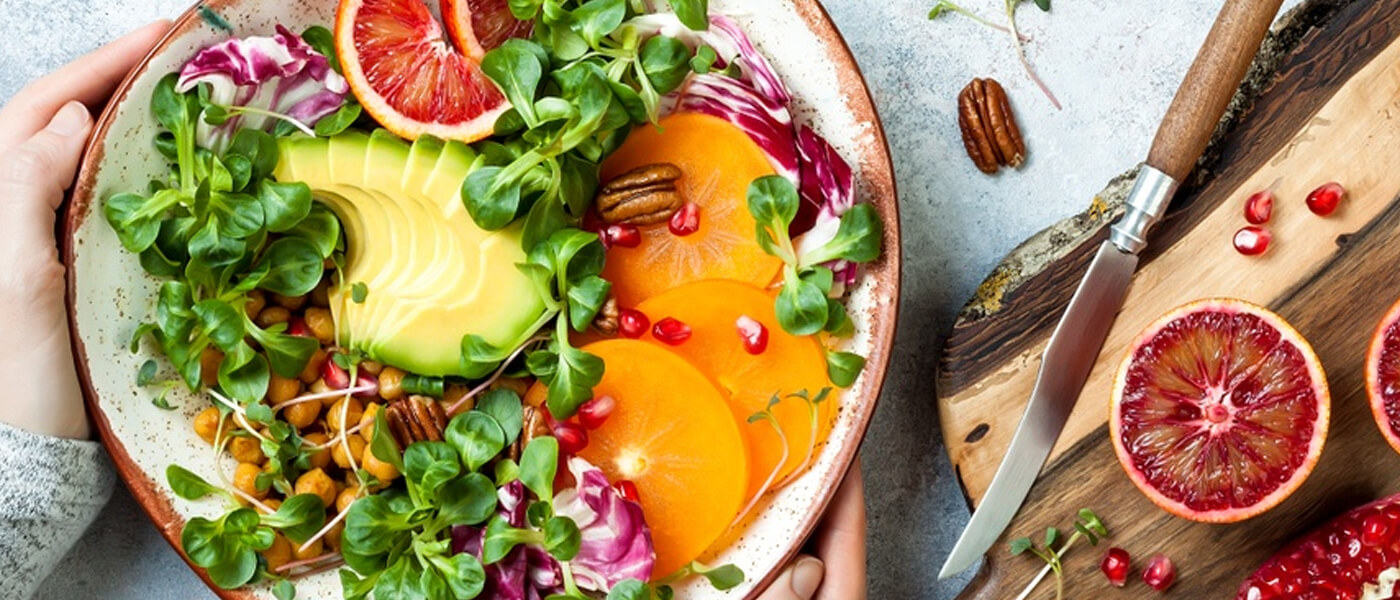
Sustainability is no longer just a trend, but a lifestyle choice for many people. As more consumers choose to switch from single-use plastics to reusable options, or opting for eco-friendly products as part of their daily routine, there are many other ways for individuals to lead a more sustainable lifestyle. A method few may have considered is switching to plant-based eating.
Does plant-based eating means that you have to abstain from meat? We clear the air and answer some of these questions as part of our beginner’s guide to plant-based eating. You will be surprised that it may be easier than you think!
What is a plant-based diet?
A plant-based diet essentially emphasises on food such as vegetables, fruits, whole grains and legumes, while at the same time, limiting your intake of meats, dairy and eggs. It really depends on how strict an individual wants to be in terms of the diet and what will be the best fit depending on health needs and daily lifestyle.
Some may opt to completely axe animal food products if they prefer, while others might just reduce their intake depending on their own interpretation of a plant-based diet. The beauty of it is that meat and seafood do not necessarily need to be off-limits, instead you can make conscious efforts to cut down on how often you consume those items.
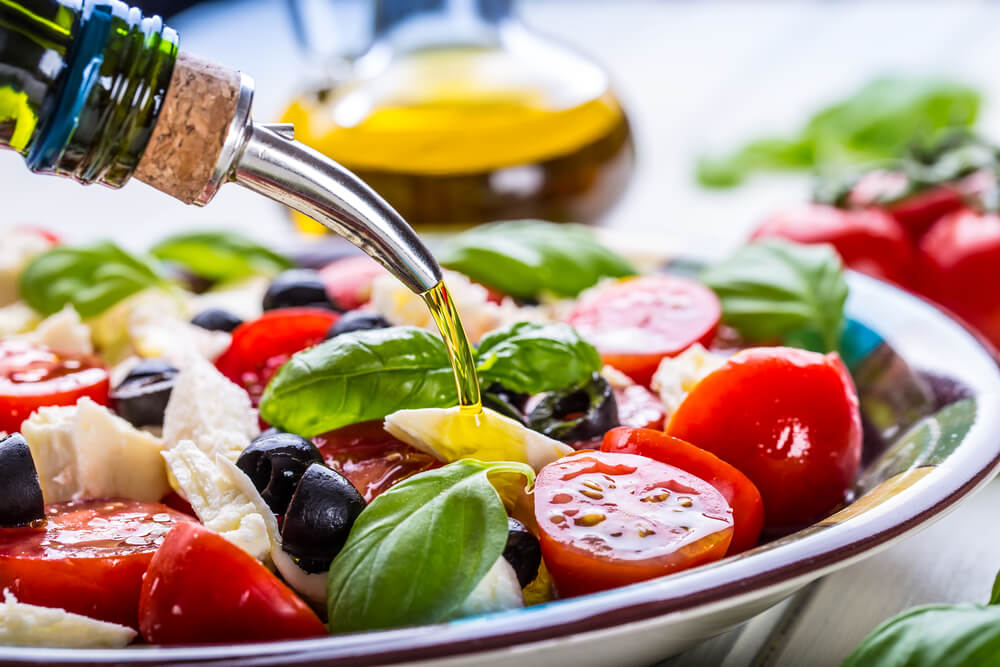
There are a range of diet options that fall under plant-based diets. Some of these examples include:
Pescatarian diet
A pescatarian diet involves eating fish and seafood as a main source of protein, together with vegetable and plant-based foods.[1]
Mediterranean diet
A Mediterranean diet focuses on fruits, vegetables, and whole grains, and it includes consuming less dairy and meat.[2]
Vegetarian diet
A vegetarian diet is a meat-free diet. Depending on the individual, some will include eggs and dairy within their diet requirements.[3]
Vegetarian diet
A vegan diet excludes all animal-based foods.[4]
Benefits of a plant-based diet
There are several benefits when choosing to incorporate a plant-based diet into your daily life. One of the most apparent change will be how it impacts your health. According to Harvard University’s health blog, it states that plant-based diets such as the Mediterranean diet, shows lower risk of chronic diseases, certain cancers, depression and frailty in older age. [5] Beyond preventing diseases, plant-based diets are also effective for treating obesity and boosting energy levels. [6]
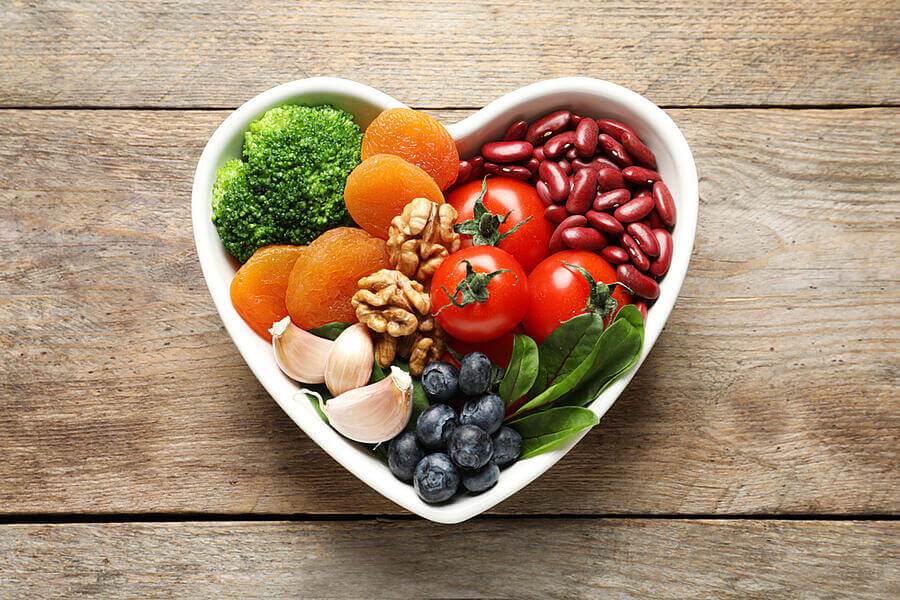
Plant-based diets are also better for the environment. Unknown to most people, what we choose to eat makes up a huge proportion of our impact on the environment. Cattle grazing contributes to climate change by producing a lot of gas such as methane and CO2. The United Nations Food and Agriculture Organisation (FAO) estimates that livestock production is responsible for 14.5 per cent of global greenhouse gas emissions. [7] The Worldwatch Institute have even mentioned that this figure could be as much as 51 per cent.[8]
With a significant amount of global emissions coming from animal products, our small choices in diet plays a huge role in helping combat climate change.
Taking the first step towards a sustainable diet
If you are convinced on wanting to move towards a plant-based diet, you might not know where or how to start, especially with so much information available out there.

Here are some additional tips and tricks to ensure a smooth transition to a plant-based diet!
1. Start with a small change:
Instead of jumping straight in and completely eliminating meat from your diet, choose to start with 1 day a week to lower your animal food intake. Meatless Monday is a global movement which encourages people to not eat meat on Mondays in a bid to protect the environment and improve one’s health. Once you are well adjusted with this, slowly increase this habit to 2-3 times a week.
2. Explore your food options:
In Singapore, there are plenty of food options out there that can come in place of meat. From mock meat to mushrooms and even legumes, choosing a plant-based diet can exercise some creativity on how you can keep those meat cravings at bay and gain the required protein from other alternatives.
3. Plan your meals and cook at home
By planning your meals for the week and making them on your own, it is certainly helpful in sustaining plant-based eating for the long haul. This is a great habit to keep where not only does it help you to stick to this commitment, but also ensures your food waste is reduced. In addition, it also gives you a chance to experiment in the kitchen and attempt new plant-based recipes you may have never tried!
Plant-based recipes to get you started
To help you kick-start on this journey, one of Geneco’s ChangeMakers Cultivate Central, have put together plant-based recipes that you can try at home using microgreens you may have grown in your own home garden.
- Quinoa, daikon, radish microgreens and tapioca salad
- Tanghoon soup with buckwheat microgreens
- Raita with sunflower microgreens
A plant-based diet really is not as daunting as it seems and can be attempted by anyone. The key is to start small and to find a flexible diet that you are comfortable with as you choose to reduce your animal product intake. While everyone has their own reasons for adopting it, the benefits it brings to our environment and fighting climate change is undeniable. Many alternatives that can help to build a compromise to enable everybody to take action for the environment, exist through their dietary choices.
References:
- [1] Crichton-Stuart , C (2018, December 6) What is a pescatarian diet?
https://www.medicalnewstoday.com/articles/323907 - [2] Johnson, J (2019, January 18) Our guide to the Mediterranean diet
https://www.medicalnewstoday.com/articles/324221 - [3] Brazier, Y (2020, January 20) What to know about the vegetarian diet
https://www.medicalnewstoday.com/articles/8749#foods - [4]Brazier, Y (2020, January 20) What to know about the vegetarian diet
https://www.medicalnewstoday.com/articles/8749#foods - [5] MacManus, K.D. (2018, September 2016) What is a plant-based diet and why should you try it
https://www.health.harvard.edu/blog/what-is-a-plant-based-diet-and-why-should-you-try-it-2018092614760 - [6] Sissions, B (2019, August 29) Everything you need to know about plant based diets
https://www.medicalnewstoday.com/articles/326176#benefits - [7] Key facts and findings
http://www.fao.org/news/story/en/item/197623/icode/ - [8] Surprising Sources of Air Pollution: 6 Ways Animal Farms Contribute to Poor Air Quality
https://gasp-pgh.org/2020/05/13/surprising-sources-of-air-pollution-6-ways-animal-farms-contribute-to-poor-air-quality/
Image Credits: Nylon Coffee Roasters
Source: The Sustainability Project
Kid-Friendly Activities to Teach your children about Sustainability
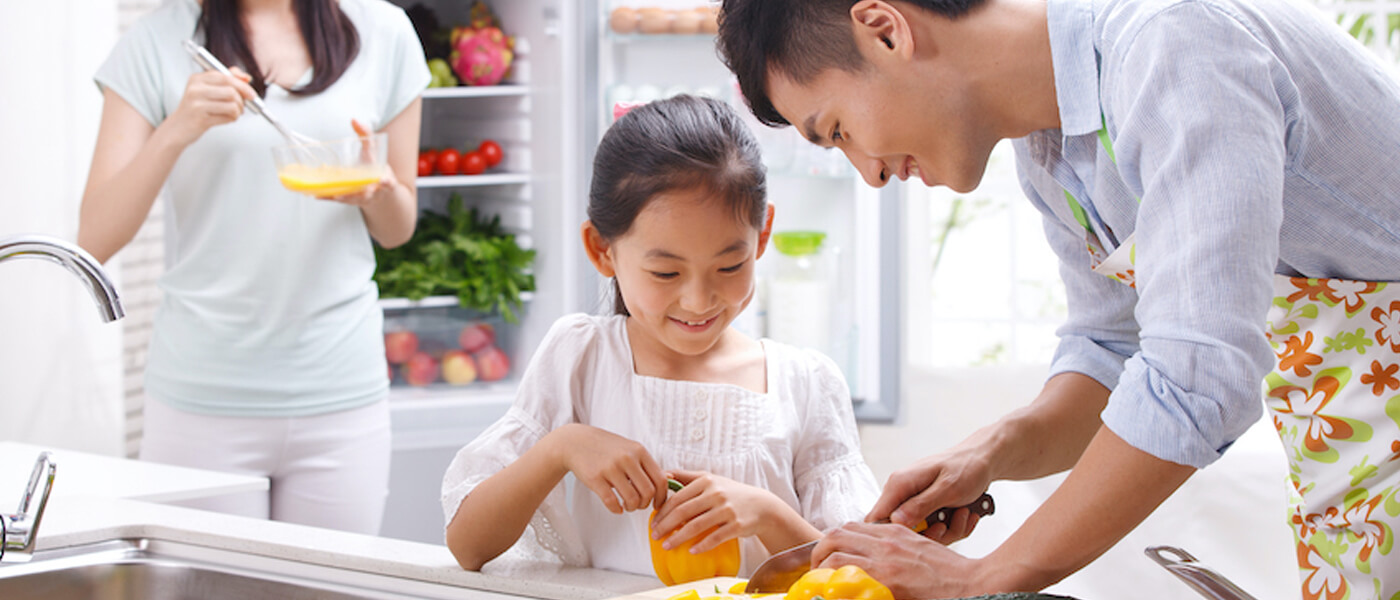
The journey towards becoming environmentally conscious often starts at home, and what better way to get your family to understand the importance of sustainability than inculcating green habits from young? How can we help our kids understand the impact we have on the planet, as well as the responsibility we have to conserve the environment for our future generations?
Fortunately, being sustainable includes lots of activities such as recycling and gardening, for our kids to try their hands on. With the activities suggested below, you’ll be able to guide your children and even yourselves towards a better understanding of how and why it is important to love and protect our planet.
Plant It, Grow It, Eat It!
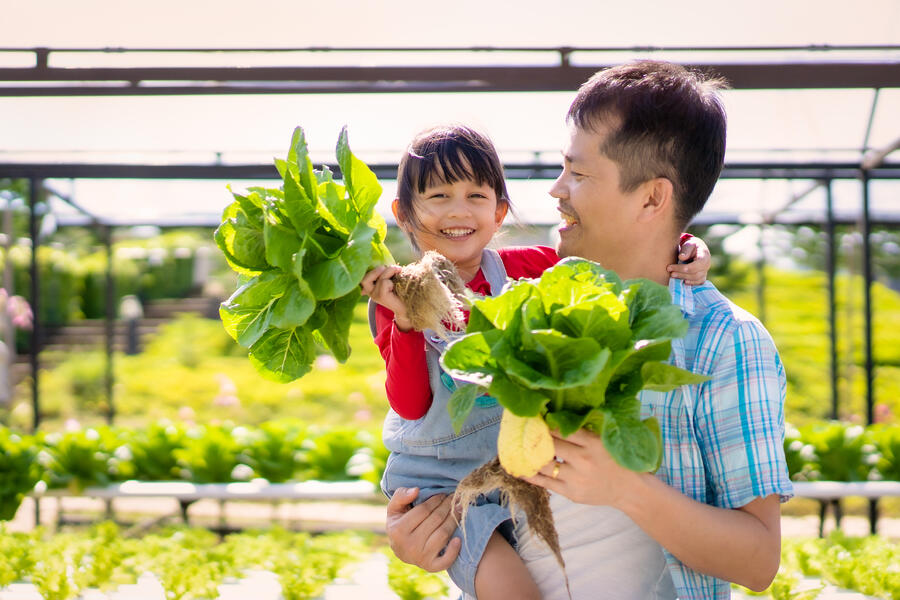
Let your kids have a sense of ownership and accomplishment through a hydroponic garden! Not only does growing your own vegetables at home promote healthier eating within the household, a home garden will also serve as an excellent classroom for your children to learn about the effort required to grow their own food, hence teaching the important lesson of food conservation!
Additionally, hydroponic gardens require less water and space and hence are also better suited for growing in a smaller room. By removing the hassle of soil that comes with traditional gardens, this wholesome project serves as a great, convenient activity you can conduct with your kids for the many weeks to come.
Upcycling Clothes at Home
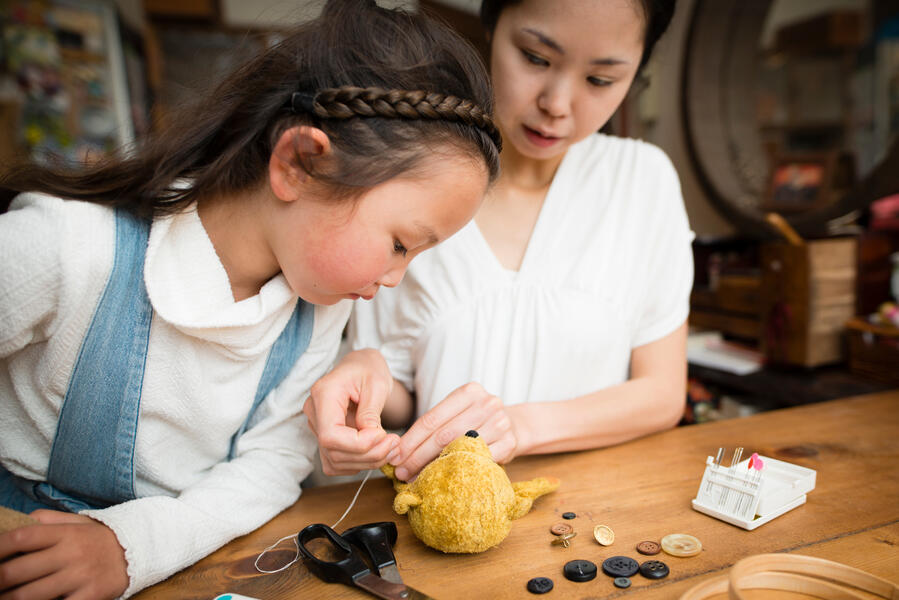
If you don’t feel like you have the green fingers, there is still a plethora of other fun DIY activities for you and the family to do together!
Heard all about upcycling discarded old clothes and other common types of waste at home? Instead of throwing them away at the nearest recycling bin, why not give them a second lease of life by upcycling them?
One simple activity you could try out is to make use of old pieces of clothing that you or your children may have outgrown from over the years. Take the opportunity to repurpose them into handy household objects, such as floor mats, wiping rugs, and or even cushion covers. By doing so, you get to be cost-efficient by making the use of your existing items at home, whilst reducing the amount of waste produced by your family.
For some ideas on how to get started on this project, take a look at our Instagram post here for some inspiration on how you can upcycle other textiles at home. Just remember to handle the scissors and needles with care around the kids!
Making Your Own Household Products

Taking it a notch higher, look beyond repurposing textile goods and consider making your own household products from scratch together as a family. Yes, we mean products such as soap, laundry detergent, and even facial beauty products for your very own organic spa!
Concocting these organic products up from scratch may seem like a daunting task at first but the benefits that come with creating it far outweighs the minor challenges. Firstly, you get to control exactly what ingredients go into each of these products, which means you can easily avoid substances or chemicals that you or your children may be sensitive to. Aside from just using healthier products, you also stand to be much more environmentally friendly and cost-efficient by making your own household products at home!
If this activity sounds like the perfect thing to do over weekend doing with your kids, we’ve also got a mini tutorial on our Instagram page to show you how you can create various beauty products with just a couple of natural fruits and ingredients. Visit the link here to find out more.
Creating a Compost Heap at Home
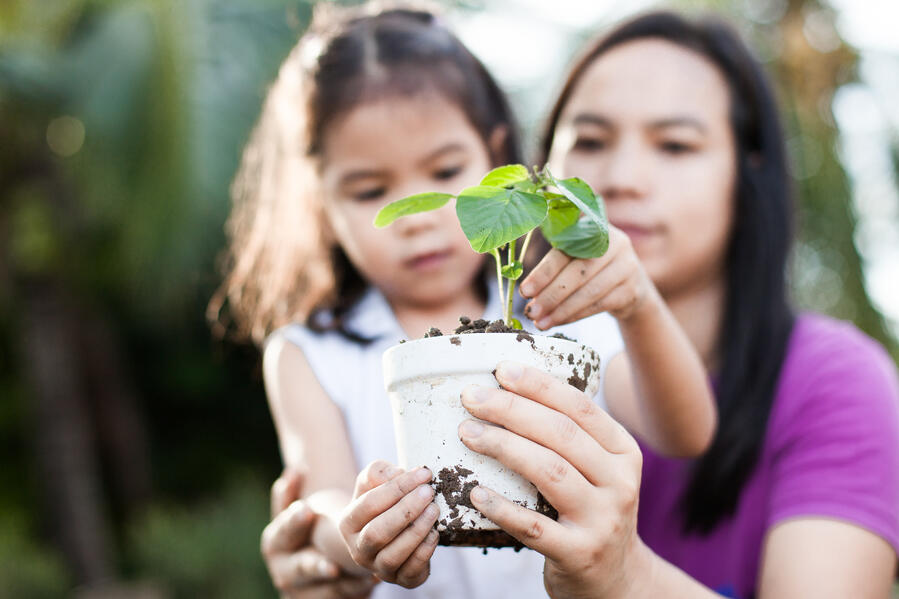
Want to be even more hands-on and get them dirty? Then why not try building your own compost heap at home? Not only is this an environmentally friendly way to get rid of excess food at home without wasting it, your kids are sure to have a great deal of fun watching and learning about the composting process right from the comfort of their own homes.
All you need to get started with are simple materials such as plastic bin, some soil and paper waste, water and you’re all set!
Simply drop a visit to our #ChangeMakersSG Cultivate Central’s blog for more detailed instructions telling you not just how, but why we should get started on composting activities with our children at home today.
Science Lessons for Kids
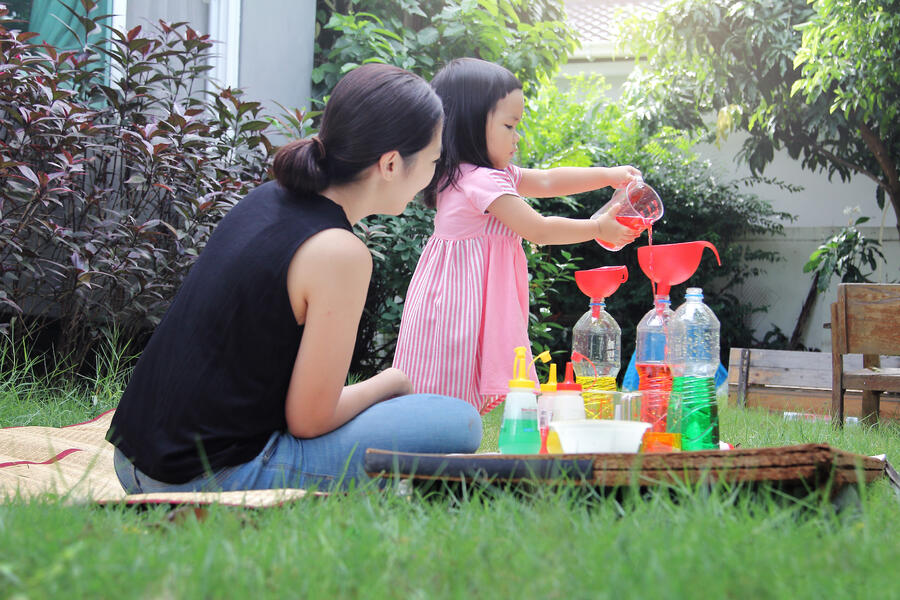
For those with kids who love science, there are also plenty of activities about sustainability for your family to try out to satiate the academic in your child.
One really easy science experiment for younger children is an air pollution experiment. Simply spread some petroleum jelly or Vaseline on a clear plastic surface and expose it to the outside air for 24 hours. At the end of the experiment, you can take the plastic surface down with your child to take a look at the amount of dust particles accumulated on the surface.
Besides making use of this opportunity to hone your child’s scientific and analytical skills, engaging in these science experiments as a family also serve as the perfect conversational starters to talk to your children about various topics concerning environmental conservation.
Activities for Today, Lessons for Tomorrow

With the abundance of resources we have at our disposal, it is vital to not just initiate conversations at home, but also making use of them to educate our children about the various issues concerning our environment.
As we progress as a society, so does the importance of environmental conservation and the onus is not only on us to protect and conserve the environment, but to also inspire and equip the future generations to love and care for a greener and brighter tomorrow.
References:
- [1] Crichton-Stuart , C (2018, December 6) What is a pescatarian diet?
https://www.medicalnewstoday.com/articles/323907 - [2] Johnson, J (2019, January 18) Our guide to the Mediterranean diet
https://www.medicalnewstoday.com/articles/324221 - [3] Brazier, Y (2020, January 20) What to know about the vegetarian diet
https://www.medicalnewstoday.com/articles/8749#foods - [4]Brazier, Y (2020, January 20) What to know about the vegetarian diet
https://www.medicalnewstoday.com/articles/8749#foods - [5] MacManus, K.D. (2018, September 2016) What is a plant-based diet and why should you try it
https://www.health.harvard.edu/blog/what-is-a-plant-based-diet-and-why-should-you-try-it-2018092614760 - [6] Sissions, B (2019, August 29) Everything you need to know about plant based diets
https://www.medicalnewstoday.com/articles/326176#benefits - [7] Key facts and findings
http://www.fao.org/news/story/en/item/197623/icode/ - [8] Surprising Sources of Air Pollution: 6 Ways Animal Farms Contribute to Poor Air Quality
https://gasp-pgh.org/2020/05/13/surprising-sources-of-air-pollution-6-ways-animal-farms-contribute-to-poor-air-quality/
Image Credits: Nylon Coffee Roasters
Source: The Sustainability Project
